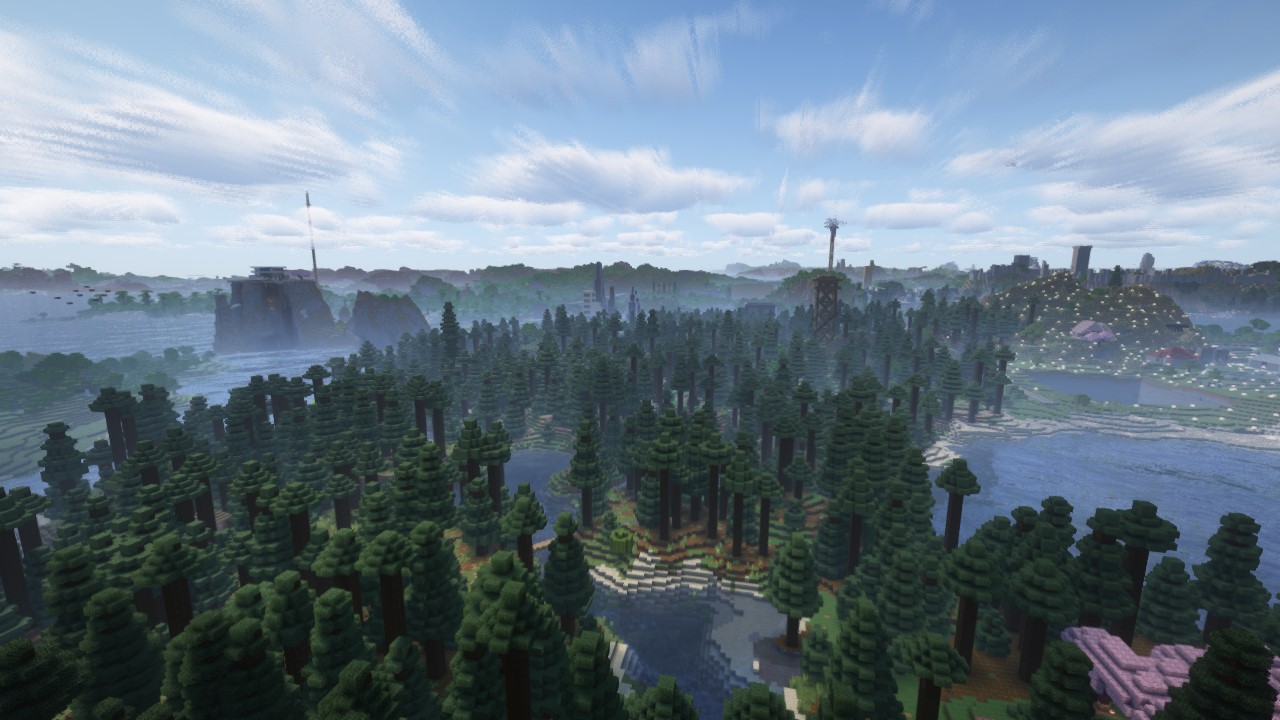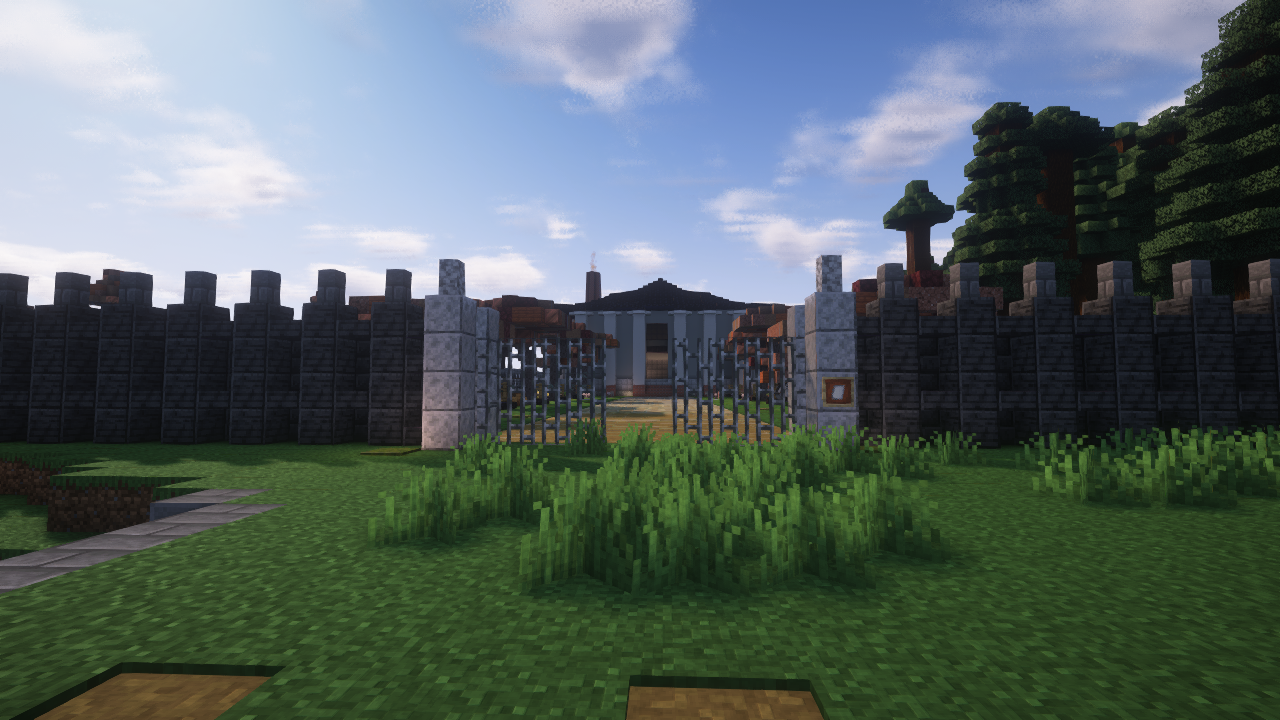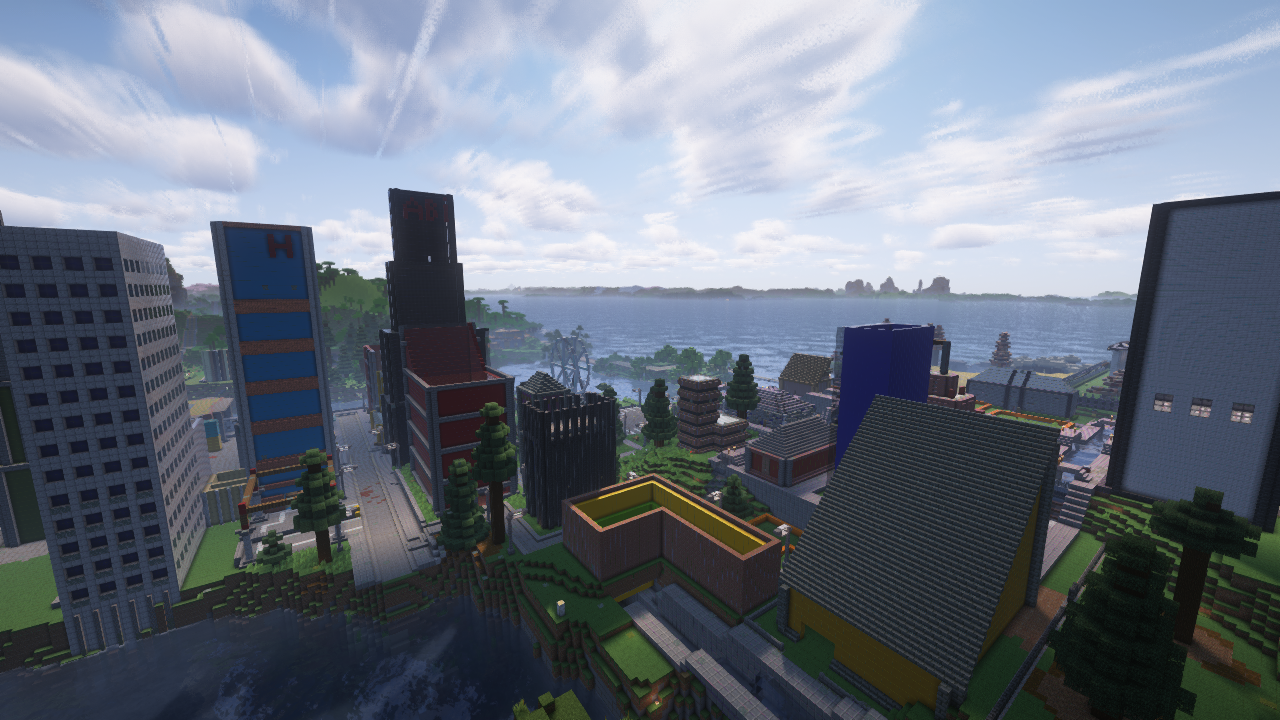Riverton
Riverton's Founding.
Riverton’s origins can be traced back to a defining agreement made on October 29, 2024. On that day, Lady Lila Black and Mayor Cassien Black , who already held leadership roles in the region, extended a pivotal invitation to Q (Quiver). They knew of his growing reputation for turning raw ambition into tangible results, and they wanted his building company—BB.CO—to help shape a city that would one day stand as a beacon of commerce and community in Avalon.
The name “Riverton” was chosen personally by Lady Lila Black. She took inspiration from the city’s geography, as it lay nestled between two significant rivers, each carrying the promise of trade and connection. Equally important was its position relative to critical infrastructure: the Shade Railroad to the north and the South Line on the other side. Riverton was destined to be a crossroads of opportunity, a place where goods could flow freely in all directions.
From the very beginning, Mayor Cassien Black and Lady Lila Black envisioned Riverton as more than just another settlement. They saw a town that would blend functionality and beauty, commerce and community. They wanted people to look upon Riverton as a place where every building had a purpose, every street led somewhere meaningful, and every newcomer might find a reason to stay. To achieve this, they turned to Q and BB Co.—not simply to construct walls and rooftops but to craft the very identity of the city.
In those early days, long before modern expansions and complex political intrigues, the focus was on practicality and cooperation. Q, working closely with local artisans and laborers, invested time in understanding Riverton’s environment and its people. The community contributed ideas, debated where to place the first marketplace, and discussed how best to utilize the nearby rivers for trade. The result was a series of careful decisions that balanced Lady Lila Black’s grand vision with Q’s hands-on approach and the townspeople’s needs.
Basic infrastructure came first: a reliable marketplace that could handle incoming and outgoing wares, a train station that allowed traders and travelers to arrive in comfort, and initial housing for those willing to lay their roots in a place where fortunes could be made. Throughout the process, the Mayor and Lady Black guided Q’s efforts, ensuring that each decision aligned with the ultimate goal—establishing Riverton as a major trade hub with a reputation for progress and opportunity.
Though these foundational efforts might seem humble compared to the city’s later grandeur, they were vital. The early community-building fostered trust among citizens, leaders, and builders. People learned to rely on one another—merchants started to form trade agreements with suppliers from afar, local farmers adjusted their crops to suit the markets, and craftspeople found eager customers for their wares. This sense of shared purpose encouraged residents to think long-term, investing their time and resources into something that felt bigger than themselves.
By the time the first year had passed, Riverton’s promise was already evident. The rivers carried barges laden with goods, the Shade Railroad and the South Line funneled travelers and traders into town, and BB Co.’s initial projects began to shape a recognizable skyline. Visitors arriving from distant towns noted how well-organized the streets seemed, how efficiently the marketplace ran, and how warmly the people greeted newcomers.
In essence, Riverton’s founding was not just a date on a calendar or a contract signed between leaders and a builder. It was a communal endeavor that combined Lady Lila Black’s strategic naming and vision, Cassian Black’s political stewardship, Q’s practical skill, and the collective will of early inhabitants. This synergy laid the groundwork for a city that would grow to become more than a trade hub—it would become a symbol of what careful planning, shared aspiration, and genuine cooperation could achieve in Avalon.
Key Historical Events in Riverton’s Early History:
The Unity Concert 11/20/24:
Among the many events that shaped Riverton’s early trajectory, few stand as prominently as the Unity Concert. Taking place at a time when the city was still finding its footing, this gathering was conceived as both a cultural celebration and a strategic gesture—an opportunity to showcase Riverton’s potential and strengthen ties with neighboring towns.
From the outset, the Unity Concert was meant to demonstrate that Riverton was more than just a budding trade hub; it was a community worth investing in. The event drew visitors from all corners of Avalon. Merchants hauling wares along the Shade Railroad, travelers curious about the city’s growing reputation, and citizens of Spawntown, Elmsbrook, and beyond converged on Riverton’s new festival grounds. Freshly erected stalls brimmed with local crafts and specialty foods, the scent of spiced meats and baked goods mingling in the cool evening air. It was a tangible sign of Riverton’s ambition and a promise that, given time, it could become a cultural center in its own right.
The concert’s lineup was a testament to the organizers’ dedication: Chelsea Cutler brought her soulful melodies, The Bleachers ignited the crowd with energetic anthems, and Morgan Wallen’s country tunes resonated with Avalonian audiences who appreciated a blend of tradition and modernity. The highlight, however, came with a surprise appearance by Jon Bellion, who performed a slow, haunting version of his song “Guillotine.” This unexpected twist thrilled attendees, marking the Unity Concert as an event people would talk about for years to come.
Yet, as often happens in moments of high expectation, tragedy struck and altered the course of the city’s history. During what should have been a celebratory apex, a sniper fired a shot intended for Lady Lila Black. Instead, it struck Q, who had been instrumental in Riverton’s initial construction and evolution. Panic rippled through the crowd, turning what had been an evening of unity into one marked by fear and uncertainty. Thankfully, swift medical intervention—most notably by Brian Ravery—saved Q’s life. But the damage had been done: Riverton’s emerging image as a harmonious hub of trade and culture now bore a scar, revealing the lurking tensions beneath its polished exterior.
In the aftermath, the Unity Concert took on added significance. What began as an event to solidify alliances and celebrate Riverton’s promise became a turning point that forced the city’s leaders, citizens, and allies to confront darker undercurrents. Speculations about who ordered the assassination attempt spread rapidly. Alliances were tested as towns began to wonder what forces might be working against Riverton’s ascent, and conversations shifted from purely economic potential to include questions of security, politics, and hidden agendas.
Still, the Unity Concert is remembered not solely for the violence that erupted, but also for what it represented before that moment. It was proof that Riverton could draw crowds, host world-class performers, and bring together disparate groups under one banner. Its success, even marred by tragedy, demonstrated that the city had the capacity to influence Avalonian culture. And in the challenging months that followed, those who believed in Riverton’s future cited the concert’s early hours—the music, the markets, the camaraderie—as evidence that the city could, and should, continue to grow.
Today, the Unity Concert stands as a key historical event not only because it shaped Riverton’s political and social landscape, but also because it tested the city’s resolve. It was an evening that revealed both the best and worst aspects of a developing metropolis: the capacity for art, trade, and partnership to flourish, as well as the vulnerability that comes with newfound prominence. In remembering the Unity Concert, one sees the complexity and resilience that have defined Riverton’s path from its earliest days to the present.
Mayor Black and Lady Black's Mansion.
Downtown Riverton as of 12/12/24





Comments